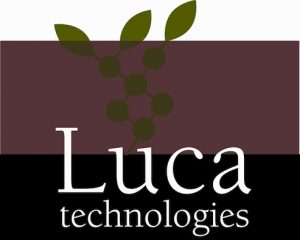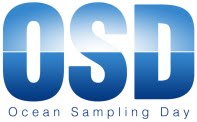The EMP was founded by Jack Gilbert (UC San Diego), Janet Jansson (PNNL), and Rob Knight (UC San Diego). Queries about the EMP can be sent to Justin Shaffer (UC San Diego) and Luke Thompson (NOAA Atlantic Oceanographic and Meteorological Laboratory).
Learn about our current team by clicking on these links:
Original content below:

The Earth Microbiome Project is a global project which will require processing as many as 200,000 samples from the most diverse and difficult sample set ever attempted. MO BIO Laboratories, Inc. welcomes the challenge of supplying a standard nucleic acid isolation method which will help scientists from around the world create a database without bias introduced from sample processing. MO BIO will help sponsor this project through donations of Power DNA kits for process validation of the initial 10,000 environmental samples. The kits utilize patented Inhibitor Removal Technology for removal of enzyme inhibiting substances. It is this same technology which will provide a tool that enables the scientists of the EMP to look at the genomes of the many different microbes living in soil, water, sediment, air and plant specimens. This is an important project and MO BIO is proud to be a recognized sponsor.

Eppendorf is a life sciences company which develops, manufactures and distributes equipment and consumables for use in all areas of life science. The company’s broad range of high quality products are used by researchers worldwide to efficiently carry out their work. Eppendorfs well documented experience in developing and manufacturing automated pipetting systems has made them an excellent partner for the Earth microbiome project, which will maintain the strictest requirements for the automated sample preparation and high throughput analysis of over 200,000 samples using the epMotion automated pipetting system from Eppendorf.

Luca Technologies extends natural gas production in depleting formations of organic rich, hydrocarbon bearing habitats. Stable, long-term generation of pure biogenic natural gas is achieved by enhancing the microbial conversion of coal, gas, oil and organic-rich shale wells into biogenic methane. Luca’s environmentally benign process restores subsurface microbial habitats to optimal conditions, recycling water and sustainably farming the low-cost biogenic natural gas created by these revitalized ecosystems. Luca Technologies has a strong interest in subsurface anaerobic environments, their associated microbial communities, as well as the Earth environmental parameter space as a whole. How these different environments and their microbial community members interact and function as a whole is an essential element of understanding global ecology particularly in extreme environments. The Earth Microbiome Project is attempting to tackle just such a scientific challenge, and Luca Technologies is proud to support them financially, as well as through scientific collaboration and access to samples from diverse subsurface environments.

Illumina enables discovery by providing comprehensive DNA and RNA analysis solutions, including genotyping and copy number analysis, gene expression, sequencing, and epigenetics: the cornerstones of genetic research. Our portfolio of tools integrates our sequencing and microarray technologies, as well as powerful assay protocols to make possible a new scale of biological research.

Pacific Biosciences has developed a novel approach to studying the synthesis and regulation of DNA, RNA and protein that enables real-time analysis of biomolecules with single molecule resolution and providing a window into these systems that has not previously been open for scientific study. Pacific Biosciences is eager to explore how application of SMRT sequencing can aid in the taxonomic and functional characterization of microbial communities. The longer sequence read length, ability to detect chemical modifications in bases in an objective, data driven fashion, and fast turnaround time can lead to the possibility of performing real-time monitoring of environments. Characterizing microbial communities in a diversity of environments across the globe will be critical for elucidating the roles these communities play in the overall wellbeing of geographic regions and in the greater health of the planet. Pacific Biosciences is proud to partner with The Earth Microbiome Project to explore the power and possibilities of third generation DNA sequencing to address these critical issues.

The EMP works with a number of other efforts such as Genome 10K; The Genome 10K project aims to sequence a type strain from 10,000 vertebrate genera. The EMP is coordinating with Genome 10K to also characterize the native microbiome of many vertebrate species, please see San Diego Zoo Study under Projects.

The EMP is associated with the Genomic Standards Consortium. One major aspect is the provision of metadata, that is data which describes the sample, experiment, and environment the sequence comes from. The Genomic Standards Consortium (www.gensc.org) as developed a series of data standards which will be adopted by the EMP for recording the sequence data it generates. The data will adhere to the Minimal Information checklists, specifically minimal information about a metagenomic sequence (MIMS) and minimal information about a marker gene sequence (MIMARKS) which describe the information the community is interested in about your sequence. These standards have been adopted by the INSDC, which is the body which oversees international sequence data deposition, and MIMS or MIMARKS compliant data are acknowledged by a GSC tag. The MIENS standard can be accessed on www.gensc.org and via Nature Proceedings.

The Earth Microbiome Project is working in partnership with the Micro B3 Consortium’s Ocean Sampling Day by coordinating sample processing (DNA extraction, PCR for 16S/18S/ITS rRNA) and sequencing of water samples collected from locations around the world. The first samples are from the pilot study on the June 20th 2012 solstice.

The Earth Microbiome Project is working in partnership with the Genomic Observatories Network to help coordinate microbial community analysis (amplicon and shotgun metagenomics) associated with long-term place-based research. By leveraging the standard protocols developed by the EMP, molecular microbial ecology data will be, for the first time, comparable across these different observational sites (many of which are associated with field stations and marine laboratories).

Nobody has to tell a giraffe how to eat, but for the first time in history humans do not know what to eat. The Human Food Project is about exploring the nutritional and cultural landscape that selected us, our microbes, and the foods we share(d).